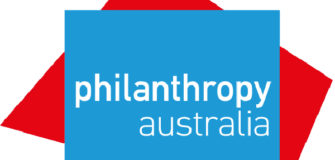As Australia has emerged as a modern welfare state, the role of community organisations has been transformed. Government programs now provide much of the financial support and many of the community services that not-for-profits (NFPs) previously delivered. The third sector has been made over.
Fifty years ago community-based organisations would often, through the application of their philanthropic endeavour, undertake activities that had a beneficial social impact. In recognition of this fact, governments on occasion offered a level of financial support to the organisations. Grants were in effect a form of public subsidy. They were designed to supplement community-driven activities that were recognised to have public value, whether it was helping migrants to settle, planting trees on a riverbank, providing meals to the homeless, or running a community arts festival.
In the last generation that financial relationship has been changed fundamentally. Community organisations today enter into service agreements to deliver government programs. Usually they only do so if they believe the purpose is in accord with their mission. But let us be clear – the programs are not designed and ‘owned’ by the NFPs themselves.
The amount of government money now paid to community organisations is greater than in the past, and as a result their economic importance is growing. The contribution of the NFP sector now represents 4 per cent of Australia’s gross domestic product, or just under $43 billion. That does not include the efforts of nearly five million volunteers who contribute an additional $14.6 billion in unpaid work. Direct government funding of NFPs totalled $25.5 billion in 2010.
The influence of NFPs on governments has significantly increased. Many government programs which are now contracted out for delivery to ‘outsourced’ third-party providers can no longer be implemented without the engagement of community-based organisations. Governments need NFPs if they are to meet voter expectations – they rely upon them.
The bad news is that public funding comes with strings attached. Government contracts often give rise to complex purchasing and reporting arrangements, typically set out in bureaucratic legalese. Organisations, which have a proud history of community-based engagement and advocacy, now find themselves treated by public service agencies as little more than ‘service providers’. Many NFPs have become significantly dependent on government payments. Some have come to define their success in terms of their ability to access government funding. Their independence has been compromised by reliance on government.
This is the invisible canker that eats at the core of Australia’s third sector. It’s symptomatic of an unequal power relationship between public servants – who purchase programs on behalf of governments – and service providers – who deliver them to clients. Contractual agreements come with a considerable compliance burden and a high level of micromanagement. Their social purpose – the very essence of their emotional appeal to donors and volunteers – can slowly be undermined. It does not have to be so.
There is no reason why the public, private and third sectors cannot build a ‘public economy’ based on collaboration. NFP enterprises need to be liberated so that their entrepreneurial flair can be given licence. If governments were more willing to pay for results rather than for process, they could let community organisations decide how they want to achieve the agreed outcomes; they could do it their way.
That would produce a far more innovative community sector: a diversity of providers, a flexible array of support programs and genuine choice for citizens in need. Base public accountability on performance rather than compliance. Let’s have public service agencies and community organisations agree the metrics against which outcome evaluation can take place.
In a more equal world NFPs, with their extensive front-line experience, would be given the opportunity to co-design the programs that they are contracted to deliver. Better still, governments might actively encourage the third sector to develop and take its own approaches and, if deemed successful, be willing to support them. Community organisations can once again take on a more proactive role.
I am not advocating a return to the days in which those in need found themselves reliant on charity. Governments have a valuable role to play in making Australian society fairer and promoting equal opportunity. Those in genuine need require more help, not less. The problem is that governments have delivered public welfare in ways which often serve to reinforce the sense of social exclusion that they are intended to alleviate – people treated as dependents become dependent; beneficiaries categorised as ‘cases’ to be managed learn to let others make decisions on their behalf.
At the same time, as publicly funded services are increasingly contracted out to NFPs for delivery, those organisations face the risk of becoming little more than government providers. Their capacity for innovation is restricted in the name of public accountability. Compliance rather than performance becomes the yardstick of evaluation.
There is a better alternative. Governments and their public services could facilitate cross-sectoral relationships that are transformational rather than transactional in nature. They could empower NFPs by allowing them to deliver public services without unnecessary interference and, better still, enable them to contribute to the design of the government programs they deliver.
A new world beckons. There is, on the horizon, a revitalised community sector in which the enthusiasm and energy of volunteers, philanthropists and social investors can once again be given full reign. It is a world in which governments, public services, businesses and NFPs can work together in partnership. Democratic governance can take the form of a network of participants. That’s a beguiling prospect.
About Peter Shergold
University of Western Sydney Chancellor Professor Peter Shergold was the founding CEO of the Centre for Social Impact, and is currently the Deputy Chair of the Sydney Writers’ Festival and a patron of the Left-Right Think Tank.
Shergold was a CEO in the Australian Public Service for two decades, working with prime ministers and ministers from both sides of politics. He currently chairs the National Centre for Vocational Education Research, the New South Wales Public Service Commission Advisory Board, and the NSW Social Investment Expert Advisory Group; serves on the Queensland Public Sector Renewal Board; and recently completed a report on community service sector reform for the Victorian Government. In addition, Shergold serves on the boards of AMP, Veda Group and Corrs Chambers Westgarth.
















































































































































